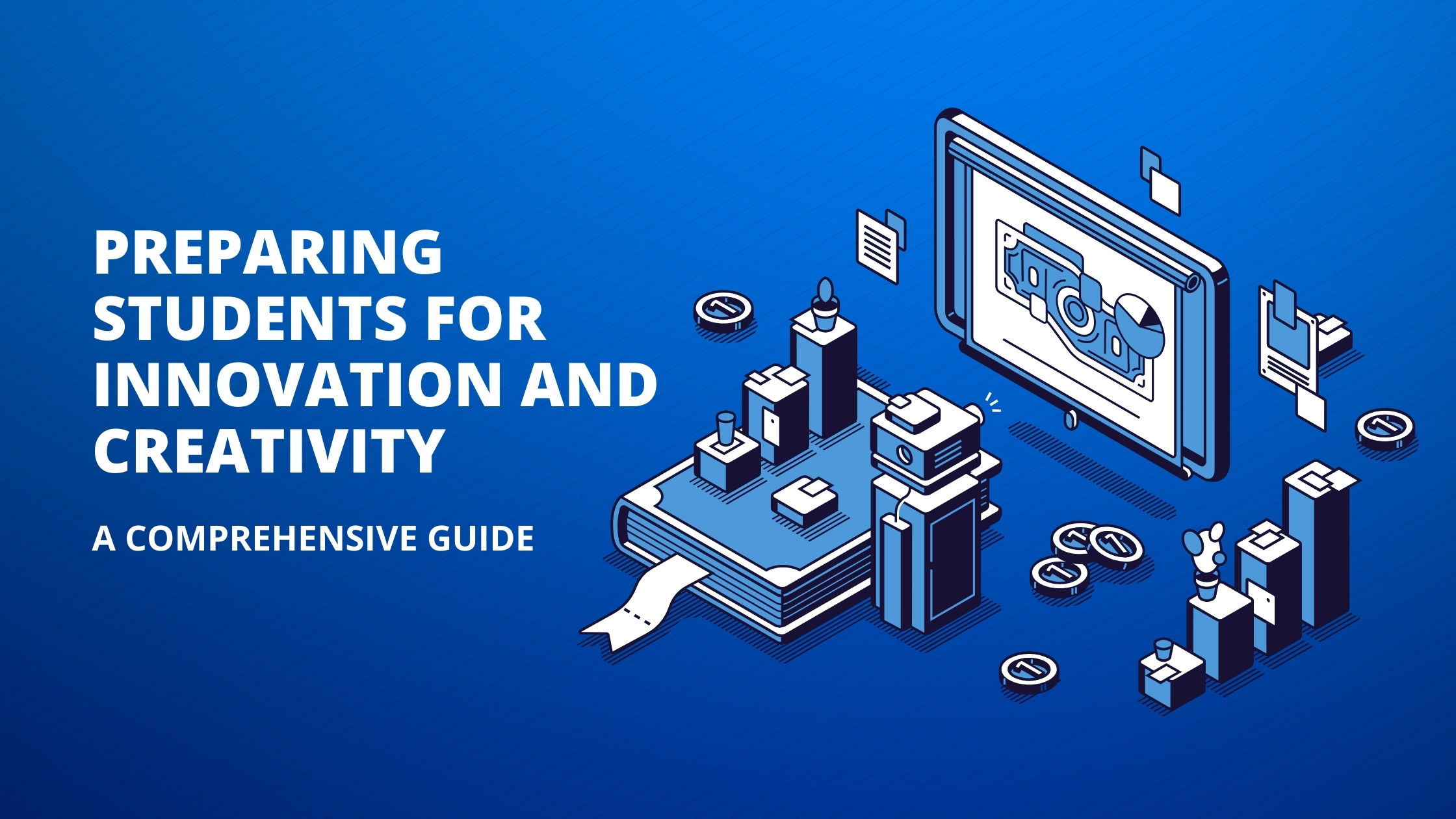Kramah Software LLC
Accreditation Management Services, AI enabled Customized Software for your Institution
Preparing Students for Innovation and Creativity
A Comprehensive Guide
By, Mahima Jagadeesh

In today’s rapidly evolving world, it’s more important than ever to prepare students for innovation and creativity. As we navigate through technological advancements and global challenges, cultivating a mindset of exploration and ingenuity becomes crucial. In this article, we’ll explore effective strategies to foster innovation and creativity in students, equipping them with the skills they need to thrive in a dynamic future.
Introduction: Nurturing the Seeds of Innovation
Before diving into specific strategies, let’s understand the importance of preparing students for innovation and creativity. Innovation drives progress, fuels economic growth, and addresses societal challenges. By nurturing creativity in students, we empower them to become future leaders, problem solvers, and change-makers.
1. Encourage Curiosity and Wonder
Curiosity is the spark that ignites innovation. By fostering a sense of wonder and encouraging students to ask questions, we lay the foundation for creative thinking. Curious minds seek out new ideas, challenge assumptions, and explore unconventional solutions.
2. Develop Critical Thinking Skills
Critical thinking is essential for navigating the complexities of the modern world. Teaching students how to analyze information critically, evaluate evidence, and think logically prepares them to tackle challenges with clarity and confidence.
3. Foster Collaboration and Communication
Innovation thrives in collaborative environments where diverse perspectives converge. By promoting teamwork, communication, and the sharing of ideas, we cultivate an ecosystem where innovation flourishes.
4. Embrace and Encourage Creativity
Creativity is the driving force behind innovation. Providing students with opportunities to express themselves through various mediums, such as art, writing, and music, nurtures their creative instincts and fosters a culture of innovation.
5. Cultivate Adaptability and Resilience
Innovation often involves taking risks and facing failure. By teaching students how to adapt to change, embrace setbacks, and learn from their experiences, we empower them to navigate uncertainty with resilience and perseverance.
6. Offer Real-World Experiences
Hands-on learning experiences expose students to real-world problems and challenges, allowing them to apply their skills in practical contexts. Internships, project-based learning, and experiential opportunities bridge the gap between theory and practice, fostering innovation.
7. Nurture a Growth Mindset
A growth mindset celebrates effort, persistence, and continuous learning. By praising students for their hard work and resilience, rather than innate talent, we instill a belief in their capacity for growth and development.
8. Explore Diverse Perspectives
Exposure to diverse perspectives and cultures broadens students’ horizons and stimulates creativity. By encouraging them to explore different ways of thinking, we foster empathy, tolerance, and a deeper understanding of the world around them.
9. Provide Access to Resources
Access to resources and tools is essential for nurturing innovation. Ensuring that students have access to technology, libraries, makerspaces, and mentorship programs empowers them to explore their interests and pursue their ideas.
10. Lead by Example
Educators play a pivotal role in shaping students’ attitudes towards innovation. By modeling curiosity, creativity, and a willingness to take risks, teachers inspire their students to embrace innovation and chart their own paths towards success.
Conclusion: Empowering the Innovators of Tomorrow
Preparing students for innovation and creativity is not just about imparting knowledge; it’s about nurturing a mindset of exploration, experimentation, and resilience. By embracing these strategies, educators can empower the next generation of innovators to thrive in an ever-changing world.
FAQs (Frequently Asked Questions)
How can teachers encourage creativity in the classroom?
- Teachers can encourage creativity by providing open-ended assignments, allowing for experimentation, and creating a supportive environment where students feel comfortable expressing themselves.
Why is collaboration important for fostering innovation?
Collaboration brings together diverse perspectives, stimulates idea generation, and encourages the sharing of knowledge and expertise, ultimately leading to innovative solutions.
What role does failure play in the innovation process?
Failure is a natural part of the innovation process. It provides valuable learning opportunities, encourages experimentation, and fosters resilience and perseverance.
How can students develop a growth mindset?
Students can develop a growth mindset by embracing challenges, seeking out feedback, and viewing setbacks as opportunities for growth and learning.
What are some practical ways to incorporate real-world experiences into the curriculum?
Practical ways to incorporate real-world experiences include internships, field trips, guest speakers, project-based learning, and simulations.